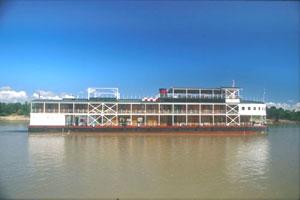Foreign investment flows into Russia plunged to $1.3 billion last year from $20.8 billion in 1998, the Central Bank of Russia reported.
Published:
14 May 2000 y., Sunday
Foreign direct investment rose to $2.9 billion in 1999 from $2.8 billion in the previous year, balance of payments data in the Central Bank's newsletter show. But the outflow of portfolio investment reached $900 million, compared to an increase of $8.3 billion in such foreign investment in 1998.
Foreign loans and credits to the government sector totaled $2.7 billion last year, down from $6.7 billion in 1998. This included $1.3 billion in untied financing: about $1.0 billion in loans from international financial organizations and a loan of $0.3 billion from the Japanese Bank for International Cooperation. Actual government payments on foreign loans and credits totaled $7.2 billion ($5.6 billion on the principle and $1.6 billion in interest), out of the $12.2 billion due; about $3.0 billion in payments were overdue. The proportion of foreign equity ownership in the Russian commercial banking system increased by 70% to 10.7% as of January 1, 2000.
Foreign direct investment into this sector rose to $0.5 billion (including subordinated credits) from an estimated $0.3 billion in 1999.
Last year $11.7 billion in cash foreign currency was brought into Russia (down from $20.7 billion in 1998), including $8.3 billion by the banking system. At the same time, $12.6 billion was taken out of the country ($21.6 billion in 1998), including $5.4 billion through unregistered trade (shuttle traders) and $5.3 billion by tourists. The official foreign currency reserves increased by $1.8 billion in 1999 as a result of operations reflected in the balance of payments.
Šaltinis:
Interfax
Copying, publishing, announcing any information from the News.lt portal without written permission of News.lt editorial office is prohibited.
The most popular articles
 An International Monetary Fund mission led by Mr. Paulo Drummond visited Bissau during January 12-27, 2010, to discuss the government’s medium-term economic program that could be supported by the IMF under the Extended Credit Facility.
more »
An International Monetary Fund mission led by Mr. Paulo Drummond visited Bissau during January 12-27, 2010, to discuss the government’s medium-term economic program that could be supported by the IMF under the Extended Credit Facility.
more »
 The International Monetary Fund (IMF) and the World Bank's International Development Association (IDA) have agreed to support US$1.9 billion in debt relief for the Republic of Congo, which includes US$255.2 million of debt relief from the two institutions.
more »
The International Monetary Fund (IMF) and the World Bank's International Development Association (IDA) have agreed to support US$1.9 billion in debt relief for the Republic of Congo, which includes US$255.2 million of debt relief from the two institutions.
more »
 In 2009, net external assets of Monetary Financial Institutions remained negative but increased by LTL 9.3 billion.
more »
In 2009, net external assets of Monetary Financial Institutions remained negative but increased by LTL 9.3 billion.
more »
 Spain's Minister for Science and Innovation, Cristina Garmendia, supports making R&D+i at the heart of Europe as a key to economic recovery.
more »
Spain's Minister for Science and Innovation, Cristina Garmendia, supports making R&D+i at the heart of Europe as a key to economic recovery.
more »
 Lithuania and Malta granted reprieve on budget deficits; Hungary and Latvia on track to meet deadlines.
more »
Lithuania and Malta granted reprieve on budget deficits; Hungary and Latvia on track to meet deadlines.
more »
 More responsibility for fishermen, rules favouring good fishing practice and adjusting fisheries management models to complement and improve the traditional quota system should be among the key aims of common fisheries policy reform, say MEPs in an own-initiative report approved by the Fisheries Committee on Wednesday.
more »
More responsibility for fishermen, rules favouring good fishing practice and adjusting fisheries management models to complement and improve the traditional quota system should be among the key aims of common fisheries policy reform, say MEPs in an own-initiative report approved by the Fisheries Committee on Wednesday.
more »
 On January 8, 2010, the Executive Board of the International Monetary Fund (IMF) concluded the Article IV consultation with Yemen.
more »
On January 8, 2010, the Executive Board of the International Monetary Fund (IMF) concluded the Article IV consultation with Yemen.
more »
 On January 22, 2010, the Executive Board of the International Monetary Fund (IMF) concluded the Article IV consultation with Norway.
more »
On January 22, 2010, the Executive Board of the International Monetary Fund (IMF) concluded the Article IV consultation with Norway.
more »
 Agriculture can help to slow climate change, but should be ready to adapt to the impact of global warming, said Agriculture Committee MEPs and scientists at a public hearing on Wednesday.
more »
Agriculture can help to slow climate change, but should be ready to adapt to the impact of global warming, said Agriculture Committee MEPs and scientists at a public hearing on Wednesday.
more »
 The Ministers for Employment of the European Union are holding an informal council on Thursday 28 and Friday 29 January which will lay the foundations for drawing up the common policies in the area of employment which the European Union will adopt over the next ten years as part of the “2020 Strategy”.
more »
The Ministers for Employment of the European Union are holding an informal council on Thursday 28 and Friday 29 January which will lay the foundations for drawing up the common policies in the area of employment which the European Union will adopt over the next ten years as part of the “2020 Strategy”.
more »